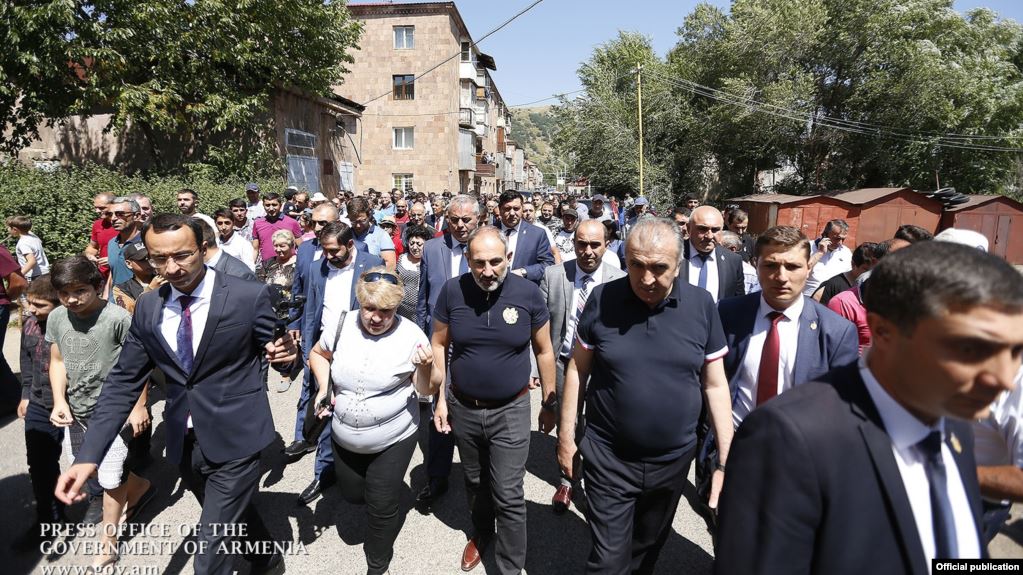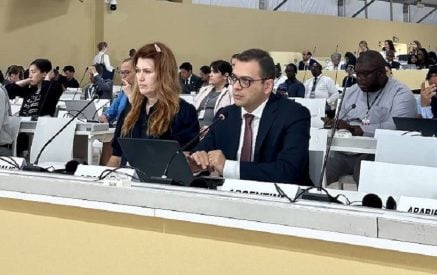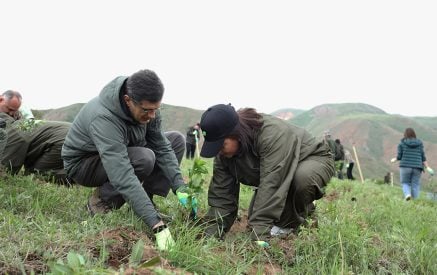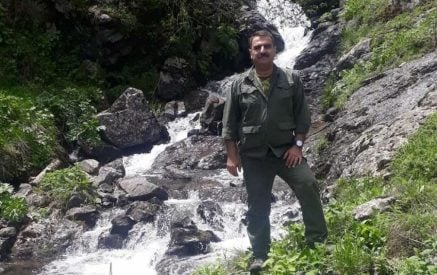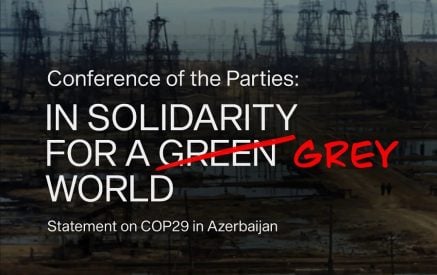Radio Azatutyun. Prime Minister Nikol Pashinian sought to reassure residents of the resort town of Jermuk and two villages located close to the Amulsar gold deposit in southeastern Armenia as he visited their communities on Friday.
Pashinian told them that the British-registered company Lydian International will not be allowed to launch mining operations there if they are deemed to pose a serious threat to the environment. He also announced that he will seek additional explanations from the Lebanese consulting firm ELARD that has conducted an independent environmental audit of the Amulsar project.
ELARD’s final report submitted Armenia’s Investigative Committee was made public two weeks ago. According to its key conclusions presented by the law-enforcement body, toxic waste from the would-be mine is extremely unlikely to contaminate mineral water sources in Jermuk or rivers and canals flowing into Lake Sevan.
The 200-page report says that gold mining poses greater environmental risks for other rivers in the area. But it says they can be minimized if Lydian takes 16 “mitigating measures” recommended by ELARD. Lydian has expressed readiness to take virtually of all those measures.
Read also
Pashinian cited these conclusions when he indicated on Monday his intention to enable Lydian the restart the multimillion-dollar mining project disrupted by protesters more than a year ago. Yerevan-based environmental activists denounced that statement. Some of them claimed that in fact ELARD gave a negative assessment of the project’s impact on the environment.
Pashinian cited the conflicting interpretations of the ELARD report when he addressed about 200 people who gathered in a Jermuk square to voice their strong opposition to gold mining at Amulsar.
“I have decided that next Thursday or Friday we will hold a video conference with ELARD’s team of experts during which we will say that ‘there is a big debate in Armenia over what you wrote [in the report] and that you yourself must now present your conclusions,” he said. “All that conversation will be filmed and made public.”
Pashinian said he will press the Lebanese environmental consultants to give “clear-cut answers” to lingering questions about the safety of Lydian’s project.
“If it emerges that our water, our air, our soil and our grass will indeed be polluted then the mine will not be allowed to operate,” he declared. “But if it emerges that the only problem is that one will see some rooftop from their window then it will be a different situation which we will discuss.”
Several dozen protesters have blocked all roads leading to Amulsar since June 2018, disrupting the construction of Lydian’s mining facilities which was due to be completed by the end of last year. The protesters say that gold mining and smelting operations would severely damage the local ecosystem.
Lydian, which has invested at least $350 million in the project, dismisses these concerns, saying that it will use modern and safe technology. The company headquartered in the U.S. state of Colorado has repeatedly demanded that the Armenian government end what it regards as an illegal road blockade.
The government contracted ELARD early this year. Pashinian and other officials said then that Lydian’s renewed operations in Armenia will depend on the results of the ELARD audit.
While in Jermuk, Pashinian also discussed the Amulsar issue with other ordinary residents of Armenia’s most famous mineral water resort. In particular, we went into the apartment of a middle-aged woman who claimed to have lived in the United States for about 27 years and returned to her hometown recently. She urged Pashinian to pull the plug on the mining project.
“I came back to live in an ecologically clean place,” she said. “I want this clean and untouched nature to be really preserved. Watching this nature gives me great pleasure.”
After meeting separately with a group of local activists campaigning against the project, Pashinian headed to the nearby villages of Gorayk and Saravan.
In Gorayk, the prime minister inspected a Lydian lab designed for water analysis and recycling and held an indoor meeting with village residents.
Many of the villagers voiced support for the project, saying that they trust in Lydian’s environment-related assurances and are eager to work for the company due to a lack of other employment opportunities in the area.
“Mr. Prime Minister, the mine must definitely work,” said one man. “It’s good for the economy. We are a country at war. Our budget needs revenues. We are all young and need jobs.”
Lydian and its Armenian building contractors employed more than 1,000 people until the start of the Amulsar blockade. Many of them were residents of the surrounding communities.
Photo – Radio Azatutyun



















































